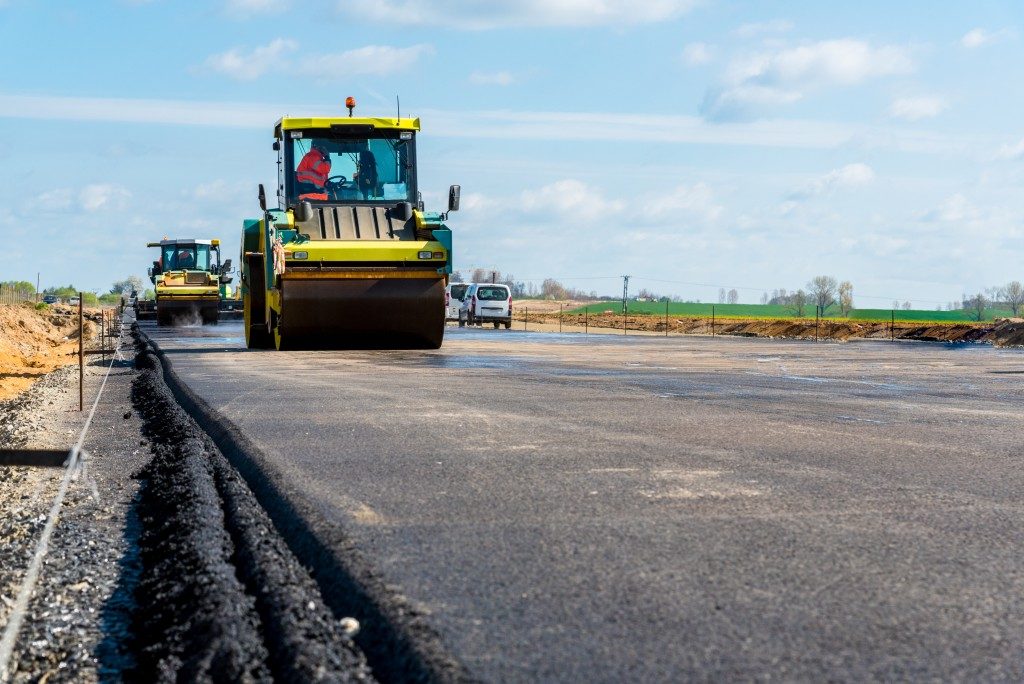NUR-SULTAN – The Kazakh government estimates 6.598 trillion tenge (US$16.91 billion) will be necessary to fund the Nurly Zhol state infrastructure development programme for 2020-2025, said Minister of Industry and Infrastructural Development Beibut Atamkulov at an Oct. 22 government meeting chaired by Kazakh Prime Minister Askar Mamin.
“As Elbasy (Leader of the Nation, the constitutional title accorded to Kazakhstan’s First President, Nursultan Nazarbayev) noted at a recent meeting of the Nur Otan faction, the new five-year plan of the Nurly Zhol programme is one of the fundamental state programmes aimed at further developing the country’s transport infrastructure and transit potential,” said Mamin.
Mamin instructed the government to ensure approval of the new programme by the end of 2019.
The new agenda of Nurly Zhol will continue developing road infrastructure. According to Atamkulov, the programme will repair 27,000 kilometres of local roads, reconstruct 10,000 kilometres and repair 11,000 kilometres of national roads.
In addition, the government plans to modernise the Dostyk-Moiynty section and electrify the Moiynty-Aktogay railway sections. The government also plans to build 16 airfields to develop small air lines.
The government plans to build and modernise 133 bus stations and passenger service points.
The new state programme should create 551,000 jobs, of which 48,500 will be permanent and 502,200 temporary. By 2025, Nurly Zhol also envisages investment in fixed assets of the transport industry to triple to 3.4 trillion tenge (US$8.71 billion). Government officials also expect rail transit to increase from 18.1 million tonnes to 26.9 million tonnes and road transit to increase from 1.6 million tonnes to 3 million tonnes per year.
The government also discussed the progress of the Nurly Zhol 2015-2019 programme, which received 5.8 trillion tenge (US$14.86 billion) to develop the transport industry.
“A stable transport and logistics system has been formed. As a result, Kazakhstan has become a transcontinental bridge between Europe and Asia. Elbasy’s tasks in creating a regional transport and logistics hub and developing the country’s transit potential are in an active stage of implementation,” Mamin said.
Over the past five years, Nurly Zhol has created more than 400,000 jobs, labour productivity almost doubled, income from transit increased from 180 billion tenge (US$461.26 million) to 782.4 billion tenge (US$2.00 billion), the share of transport in gross domestic product (GDP) grew to 8.3 percent, total transit of containers tripled to 825,000 containers in twenty-foot equivalent, the transit of goods increased from 1.3 million tonnes to 1.8 million tonnes and the number of air transit passengers increased four times to approximately 1 million.
The programme built and reconstructed 3,000 kilometres of national roads, repaired 15,000 kilometres of regional and district roads, commissioned 1,400 kilometres of new railways, modernised six runways at the airports of Almaty, Balkhash, Kostanai, Petropavlovsk, Semei and Uralsk.
The capacity of Kazakh-Chinese border terminals has been increased to 40 million tonnes per year. The capacity of the port infrastructure on the Caspian Sea has been increased from 17.5 million to 27 million tonnes per year. This capacity growth was achieved with the Aktau port expansion and the Kuryk port construction.
Engineering networks have been elongated to 3,400 kilometres. The freight traffic on inland waterways has grown 86 percent, from 750,000 tonnes to 1.4 million tonnes. The navigation on the Irtysh River has resumed and the quality of navigable waterways has been improved, say officials.



